What is HR and Payroll Outsourcing?
HR and payroll outsourcing refers to the practice of delegating HR-related functions—such as recruitment, employee management, benefits administration, compliance, and payroll processing—to a third-party service provider. These service providers offer expert solutions, allowing businesses to focus on their core competencies while ensuring that employee-related processes are efficiently handled.
Payroll outsourcing typically involves services like salary calculations, tax filings, deductions, compliance with labor laws, and ensuring that employees are paid on time. HR outsourcing, on the other hand, covers areas like employee recruitment, training, benefits management, employee relations, and performance management.
Now, let’s delve into the benefits of outsourcing HR and payroll functions and how they can positively impact your business.
1. Cost Savings
One of the most compelling reasons businesses choose to outsource hr and payroll is the significant cost savings it offers. Maintaining an in-house HR department and payroll team can be expensive. Salaries for HR professionals, payroll software costs, employee benefits, and the time spent on training and compliance management add up quickly.
Outsourcing these functions allows companies to reduce overhead costs by eliminating the need for a dedicated internal team. Third-party providers typically offer scalable packages, so businesses only pay for the services they need. This is particularly advantageous for small and medium-sized enterprises (SMEs), who may not have the resources to build a comprehensive in-house HR department.
Additionally, outsourcing providers are often able to leverage their expertise and technology to process payroll more efficiently, reducing the chances of errors and the need for costly corrections.
2. Focus on Core Business Functions
Outsourcing HR and payroll frees up valuable time for business owners and managers to focus on what truly matters—growing the business. Running a business involves many challenges, and handling administrative tasks like payroll processing, compliance management, and recruitment can take time away from core activities like strategy development, product innovation, and customer relationship management.
By outsourcing these functions, businesses can allow their internal teams to concentrate on strategic goals, such as improving product offerings, expanding market reach, or enhancing customer service. This shift in focus can help improve overall performance and profitability, as employees are able to invest more time and effort in activities that drive the business forward.
3. Access to Expertise and Compliance
HR and payroll management require a deep understanding of ever-changing labor laws, tax regulations, and industry-specific compliance standards. Keeping up with these requirements can be a complex and time-consuming task for businesses, especially in highly regulated industries.
By outsourcing to an expert provider, businesses gain access to professionals who specialize in these areas and are well-versed in the latest legal requirements. This helps ensure that your business stays compliant with all local, state, and federal regulations, reducing the risk of costly fines or penalties.
Outsourcing providers also use advanced software and tools that help automate many of the administrative tasks associated with payroll processing and HR management, ensuring that they are completed accurately and on time. With experts handling these functions, your company can minimize the likelihood of errors, discrepancies, and compliance violations.
4. Scalability and Flexibility
As your business grows, so do the complexities of HR and payroll management. You may need to recruit more employees, adjust compensation structures, or expand to new geographic regions. Scaling these functions in-house can be a challenge, requiring additional staff, infrastructure, and training.
Outsourcing offers flexibility, enabling your business to easily adjust as it grows. Whether you need to hire seasonal employees, offer new employee benefits, or expand payroll to multiple locations, outsourcing providers can quickly adapt to meet your changing needs. This scalability ensures that your business can handle growth without being overwhelmed by administrative tasks.
5. Improved Data Security
HR and payroll functions involve the handling of sensitive employee information, such as social security numbers, tax details, and bank account information. Protecting this data is of paramount importance, as any breaches could result in identity theft, legal issues, and reputational damage.
Outsourcing to a reputable service provider ensures that your employee data is stored securely and that all necessary safeguards are in place to protect against breaches. These providers typically invest in the latest security technologies, such as data encryption and secure data storage, to ensure that sensitive information is protected from unauthorized access.
Moreover, outsourcing providers are usually well-versed in data protection regulations, such as the General Data Protection Regulation (GDPR) or the Health Insurance Portability and Accountability Act (HIPAA), depending on your business needs. This ensures that your company complies with data privacy laws and reduces the risks associated with data handling.
6. Time Savings and Efficiency
HR and payroll tasks can be time-consuming, especially when done manually. Payroll processing, for example, involves calculations, deductions, tax filings, and addressing discrepancies, all of which require attention to detail and time. HR tasks like recruitment, onboarding, and benefits management also take up considerable time and resources.
Outsourcing these functions to professionals who specialize in HR and payroll management can save your business significant time. Providers use efficient processes and advanced software to automate tasks, reducing the need for manual intervention and streamlining operations. This efficiency ensures that tasks are completed more quickly and accurately, helping businesses stay on top of deadlines and avoid errors.
The time savings also extend to your internal team, as they are no longer burdened with time-consuming administrative duties. This gives them more time to focus on higher-value activities, such as employee development and organizational growth.
7. Employee Satisfaction and Retention
Outsourcing HR functions can also have a positive impact on employee satisfaction. By using an experienced provider, your business can offer enhanced employee benefits, better recruitment strategies, and more efficient payroll services. This creates a more positive experience for employees, who appreciate timely and accurate payroll processing, as well as a well-managed benefits program.
Furthermore, a streamlined and well-managed HR system can contribute to a more positive workplace culture, which can improve employee morale and retention. When employees feel supported by efficient HR processes and benefits, they are more likely to remain with your company long-term.
Conclusion
Outsourcing HR and payroll offers a wide range of benefits that can significantly improve the efficiency, compliance, and growth of your business. From cost savings and access to expert knowledge to enhanced data security and scalability, outsourcing these functions allows businesses to focus on their core objectives while leaving administrative tasks in the hands of professionals. Whether you’re a small business looking to reduce overhead costs or a growing company that needs more flexibility, outsourcing HR and payroll can be a strategic decision that drives success.
Frequently Ask Questions
Q. How much does HR outsourcing cost?
A. The cost of HR outsourcing varies depending on the services required, company size, and provider. Typically, it can range from $500 to $2,500 per month or more.
Q. Can I outsource my payroll?
A. Yes, businesses can outsource payroll functions to specialized providers who manage tasks such as tax calculations, compliance, and employee payments.
Q. Can HR function be outsourced?
A. Yes, businesses can outsource various HR functions, including recruitment, benefits management, training, and compliance, to third-party service providers.
Q. Who is the payroll provider for Mazars?
A. Mazars’ payroll provider is not publicly disclosed, but large firms like Mazars often partner with specialized payroll companies for their employee payment needs.
Q. Is HR outsourcing good or bad?
A. HR outsourcing can be highly beneficial for cost savings, compliance, and efficiency. However, it may not be suitable for all businesses, particularly those needing direct control over HR.
Q. What do HR consultants charge per hour?
A. HR consultants typically charge between $50 and $300 per hour, depending on their expertise, the complexity of the services provided, and the size of the business.



